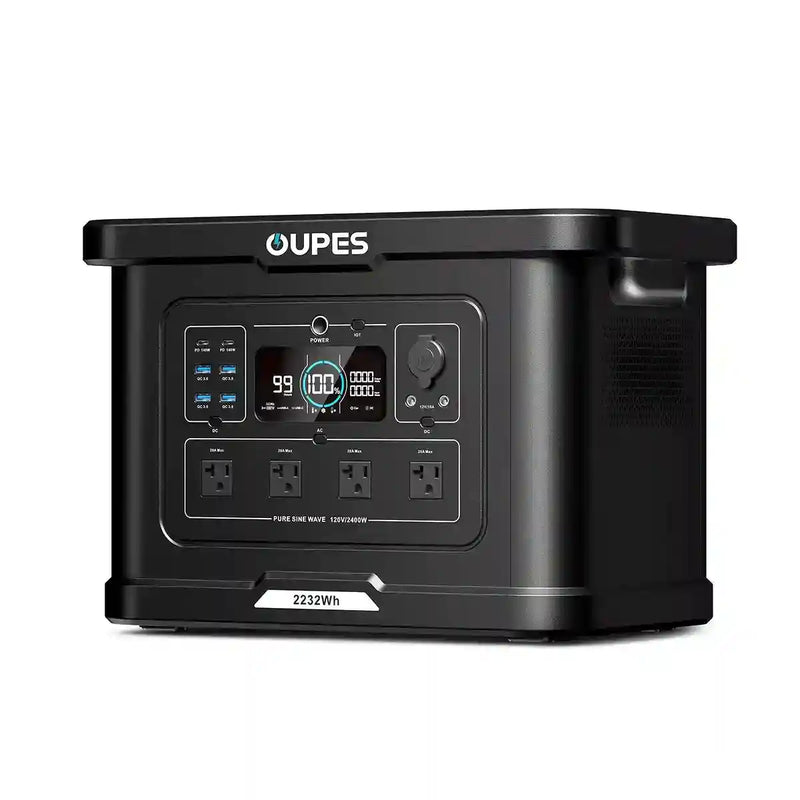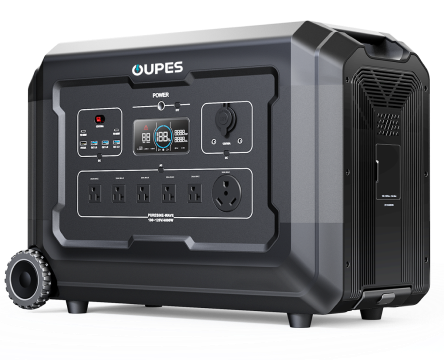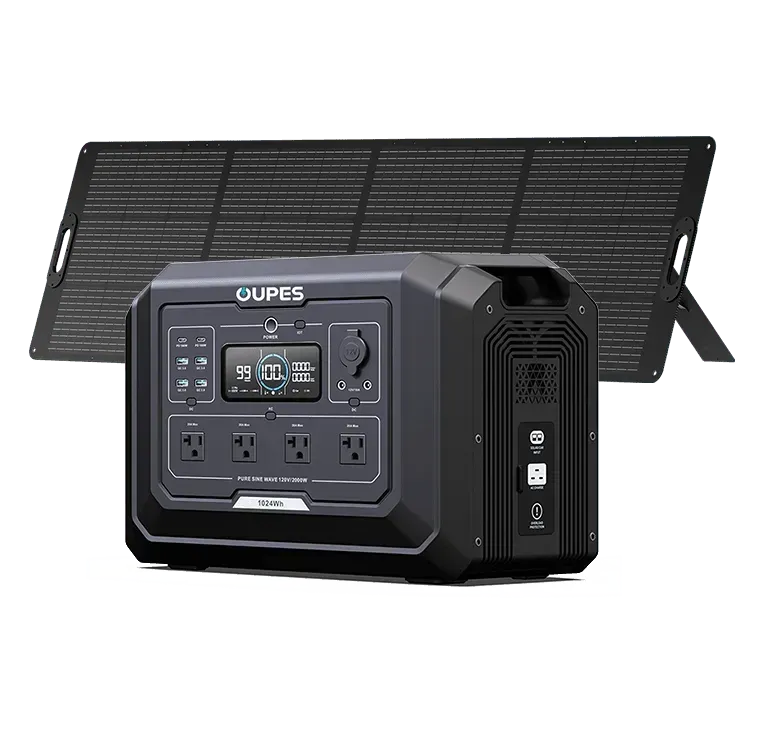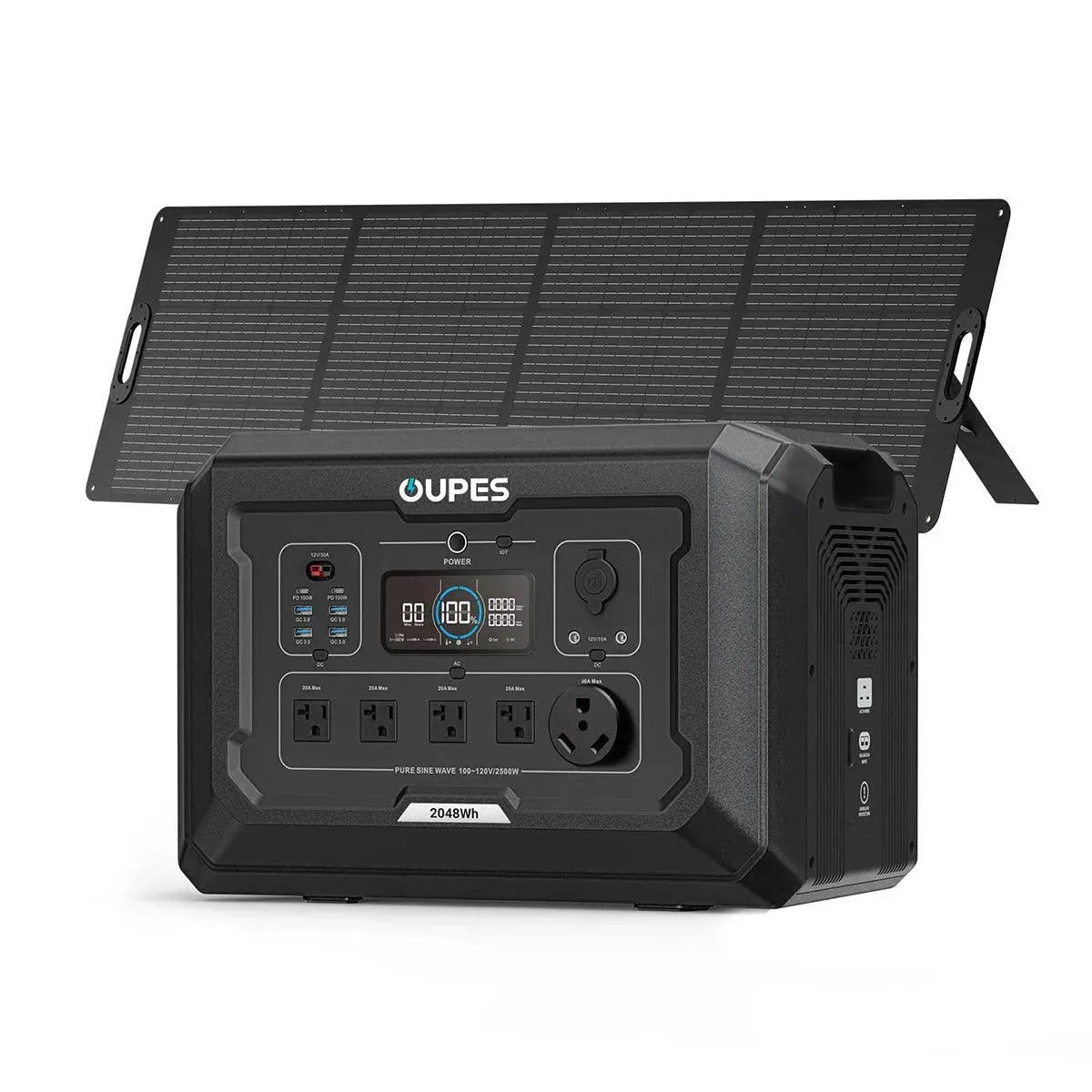
Table of Contents
- Introduction: Why Solar Batteries Matter During Outages
- How Solar Batteries Work in a Home Setup
- Scenarios: Running a Home Off Solar Batteries During Outages
- OUPES Solar Batteries and Power Stations Compared
- Best Practices to Maximize Backup Power
- FAQs
- Conclusion
Introduction: Why Solar Batteries Matter During Outages
Power outages can disrupt modern living, cutting off access to essentials like lighting, refrigeration, and communication. With climate events and grid failures on the rise, more homeowners are exploring solar batteries as reliable backup systems. These batteries store solar energy during the day and release it when the grid goes down, ensuring continuous power.
OUPES offers solar batteries and portable power stations that can keep homes running smoothly during emergencies. Whether you need to maintain critical appliances or power an entire household, solar storage can make the difference between comfort and chaos during outages.
How Solar Batteries Work in a Home Setup
Daytime Charging
Solar panels capture energy from sunlight and direct it to charge solar batteries. The energy is stored in high-capacity LiFePO4 cells, known for their long cycle life and safety. During grid uptime, these batteries can also store excess power generated by rooftop solar arrays.
Nighttime and Outage Supply
When the grid goes down, a properly configured system automatically switches to battery power. This ensures that appliances like refrigerators, medical devices, and lights continue to run without interruption. With the right OUPES system, households can enjoy seamless energy during extended outages.
Integration With Solar Panels
Solar batteries work best when paired with solar panels, providing renewable charging even when the grid is unavailable. Unlike generators, they operate silently and produce no emissions, making them ideal for both indoor and outdoor use.
Scenarios: Running a Home Off Solar Batteries During Outages
Short-Term Outages
For outages lasting a few hours, compact systems like the OUPES Exodus 1200 provide sufficient energy to run lighting, communication devices, and a small refrigerator. These solutions are portable and quick to deploy.
Extended Power Failures
For outages lasting days, larger units like the OUPES Mega 3 or Mega 5 deliver higher capacity and expandability. These models can power essential home appliances, including washing machines and full-size refrigerators, ensuring long-term resilience.
Off-Grid Preparedness
For households looking for complete energy independence, expandable setups like the OUPES Mega 5 paired with extra B5 batteries can scale up to 45.36kWh, supporting entire households through long-term blackouts or fully off-grid living.
OUPES Solar Batteries and Power Stations Compared
Choosing the right solar battery depends on your home’s energy requirements. Below is a comparison of popular OUPES models:
| Model | Capacity (Wh) | AC Output | Expandable | Best Use Case |
|---|---|---|---|---|
| Exodus 1200 | 992Wh | 1200W | No | Short outages, portable use |
| Mega 2 | 2048Wh | 2500W | Yes (up to 10.24kWh) | Refrigerators, home office backup |
| Mega 3 | 3072Wh | 3600W | Yes (up to 15.36kWh) | Extended outages, multiple appliances |
| Mega 5 | 5040Wh | 4000W | Yes (up to 45.36kWh) | Whole-home backup, off-grid living |
Best Practices to Maximize Backup Power
- Prioritize Loads: Run essential appliances first, like fridges and medical devices, to extend battery life.
- Combine Solar and Storage: Pair OUPES batteries with solar panels for continuous recharging during daytime.
- Monitor Usage: Use built-in displays or OUPES app control to track real-time energy consumption and adjust loads.
- Expand When Needed: Add extra batteries to Mega series units to scale backup capacity for longer outages.
- Maintain Efficiency: Keep panels clean, position them properly, and store batteries in a cool, dry place.
FAQs
Can a solar battery power my entire home?
Yes, with larger OUPES models like the Mega 5, you can run most or all household appliances during outages.
How long can a solar battery last during an outage?
Duration depends on the model and load. The Mega 5 with expansion can last several days powering essentials.
Do I need solar panels for recharging?
Yes, solar panels allow recharging during the day, making the system sustainable for long-term outages.
Are OUPES solar batteries safe?
Yes, they use LiFePO4 chemistry, known for safety, long lifespan, and stability under high loads.
Can I install the system myself?
OUPES units are designed for easy setup. Larger solar integrations may benefit from professional installation.
What happens when the grid returns?
The system automatically switches back, saving stored energy for the next outage.
Do these systems require maintenance?
Minimal maintenance is needed. Keep batteries in good condition and panels clean for optimal performance.
Conclusion
Running your home off solar batteries during outages is entirely possible with the right setup. From short-term blackouts to extended grid failures, OUPES portable power stations and expandable solar batteries provide dependable energy when you need it most.
By choosing models that match your household’s needs, and following best practices for load management and solar integration, you can ensure uninterrupted comfort, safety, and independence during any outage scenario.




























